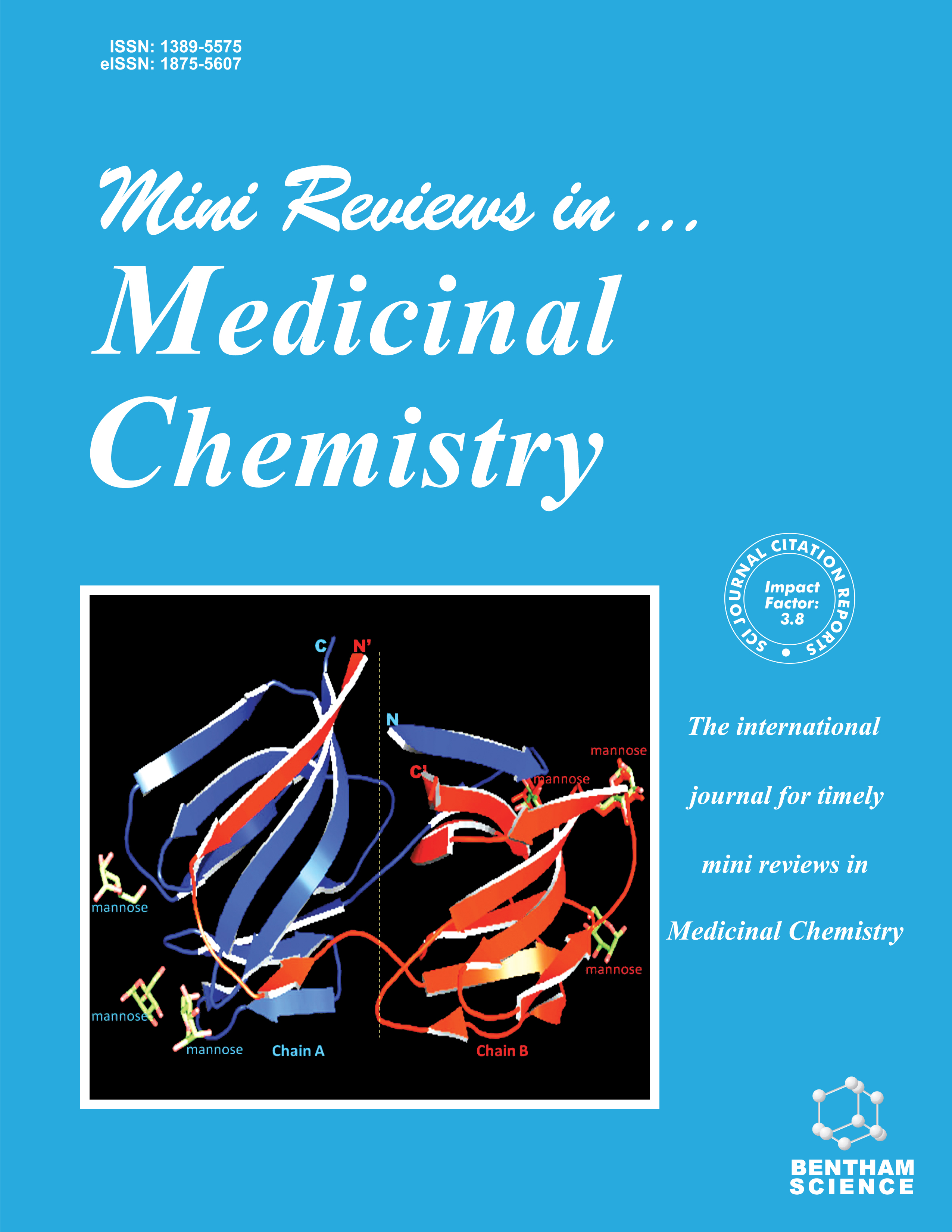-
oa Fine Tuning of Protein Kinase C (PKC) Isoforms in Cancer: Shortening the Distance from the Laboratory to the Bedside
- Source: Mini Reviews in Medicinal Chemistry, Volume 11, Issue 3, Mar 2011, p. 185 - 199
-
- 01 Mar 2011
Abstract
The serine/threonine protein kinase C (PKC) family was first identified as intracellular receptor(s) for the tumor promoting agents phorbol esters. Thirty years after the discovery of PKC, the role of specific PKC isoforms has been described in relationship with an altered pattern of expression in different types of cancer and a good number of small molecule inhibitors (inhibitory peptides, antisense oligonucleotides or natural compounds) targeting PKC are now available. Despite all these achievements and a huge amount of basic research studies on the biochemical regulation of PKC, there has been a delay in clinical trials with drugs targeting PKC function. This delay is easily explained taking into account the extreme biological complexity of the PKC family of isoforms and the incomplete understanding of the specific role of each PKC isozyme in different types of cancers. Some of the difficulties in developing pharmacological compounds selectively tuning the different PKCs have started to be overcome. In this review, the growing evidences of the role of the PKC isoforms α, βII, δ, ε, ζ and ι is in promoting or counteracting tumor progression will be discussed in relationship with promising therapeutic perspectives.


